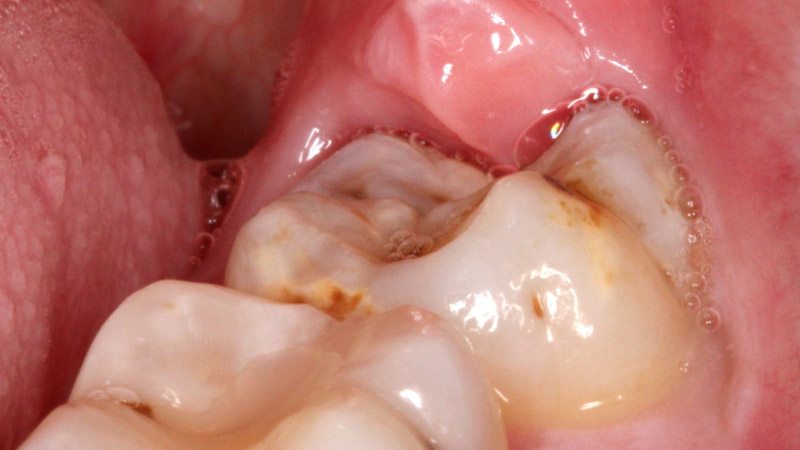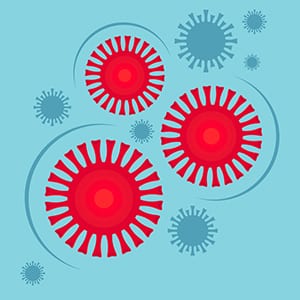River Dentistry’s extensive guide to wisdom teeth pain continues with some information on what you can do to get some pain relief when your wisdom teeth are acting up.
Mouth Rinse
Use either a salt-water rinse (cup of warm water with half teaspoon of salt) or chlorhexidine mouthwash. Rinse for at least 30 seconds trying to swish the mouthwash around the sore wisdom teeth area. Repeat several times a day while symptoms persist. The purpose of the mouthwash is to clean under the gum flap, where the inflammation-causing bacteria may thrive.
Chlorhexidine mouthwash also comes in a gel form. This can be very useful as the cleaning gel can seep under the gum-flap (that lies above the impacted molars) and it can remain active there for some time.
In case of severe pain/swelling, applying hot or cold compresses to the area may also provide some relief. You can use an ice pack or a hot-water bottle against the cheek for a maximum of 15 minutes at a time.


Painkillers
Painkillers and anti-inflammatories (e.g. paracetamol, aspirin, or ibuprofen) can all help bring pain relief. A variety of over-the-counter painkillers can also be useful, for example: Ibuprofen (Advil/Motrin/Brufen), Aspirin, Paracetamol/acetaminophen/Tylenol, or Paracetamol/Tylenol 3 with codeine.
Ibuprofen is best for a lot of people to provide relief as it both reduces toothache and also reduces inflammation. However only take any medicine to stop pain if you know it is suitable for you. For example, ibuprofen is not suitable if you have stomach ulcers or are asthmatic. Aspirin is not suitable if you have any bleeding disorders. Some painkillers are best avoided during pregnancy.
If in doubt, always get advice from your doctor/dentist and/or pharmacist on which painkillers you can take. Always stick to the recommended dose of any medication. Never leave an aspirin tablet resting beside the wisdom tooth! This will not provide any pain relief, but may burn your gums.
Your Dentist
In the case of symptoms persisting or getting more severe, including swollen glands under the chin (‘lymph nodes’), swelling of the face and jaw, muscle spasms in the jaw, fever and general malaise, you should contact your dentist immediately.
In the first instance, the dentist will clean under the gum flap and may prescribe an antibiotic if a wisdom teeth infection is present. The dentist may also file down the upper wisdom tooth or indeed extract this if is impinging onto the gum flap when you bite (as a general rule, upper erupted wisdom teeth are much easier to extract than their lower counterparts). Treating the upper opposing tooth can give a fast remedy in some circumstances. This may also result in the impacted (lower) tooth settling down in the long term.
The dentist will examine the area around the wisdom teeth coming in and may take X-rays. These will give a clearer view of where the affected teeth are, whether or not they are impacted and how they might move (or otherwise) in the future. Therefore your dentist will be better advised on the ideal wisdom teeth pain management strategy for your circumstances. In the case of serious symptoms, e.g. major swelling, the dentist may have to refer you to hospital.
You do not need to be an established River Dentistry patient to get help with your wisdom teeth problems or just get evaluated. Our convenient Downtown Los Angeles dentist office is open till 7 PM on weekdays and till 4:00 PM on Saturdays. Just call our best-reviewed Downtown LA dentist office at 213-486-0006, email us at











